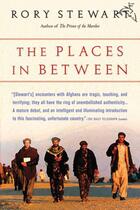-
Nombre de pages : (-)
-
Collection :
(-)
-
Genre :
(-)
-
Thème :
Non attribué
-
Prix littéraire(s) :
(-)
Résumé:
Ten years after walking across Central Asia and through Afghanistan, Rory Stewart returns to Britain. He walks a thousand miles, crossing and recrossing the English-Scottish Border. A referendum is coming on whether Scotland will become independent country; he is a Scot living in England, and... Voir plus
Ten years after walking across Central Asia and through Afghanistan, Rory Stewart returns to Britain. He walks a thousand miles, crossing and recrossing the English-Scottish Border. A referendum is coming on whether Scotland will become independent country; he is a Scot living in England, and the Member of Parliament for the only constituency with 'Border' in its name. He paces back and forth between his family house in Scotland and his own home in Cumbria. He discovers that, buried beneath England and Scotland, is another country, now lost, a Middleland with its own history, its own civilisation: a vanished kingdom. Stewart sleeps on mountain ridges and in housing estates, in motels and in farmhouses. Following lines of neolithic standing stones and the wilderness created by farming subsidies; wading through floods and ruined fields, he traces Hadrian's Wall with soldiers who have fought in Afghanistan. He interviews Buddhist and Christian monks, investigates arson attacks and heritage websites, and tries to get to grips with his tartan-clad father. His book becomes a history of the Middleland, or "The Marches", what is now the frontier zone between two contemporary nations. Britain, he argues, is an island whose natural boundaries are the sea, a nation split by a colonial empire that drew a line on a map, separating tribes and families. The book is defined by a profound love of landscape, and walking, an unusual erudition, and an instinct for the most eccentric local histories. It draws on contemporary politics, and long years working in rural Asia, and on troubled borders, to illuminate the pattern of forgetting and remembrance that makes a very modern border and a very modern nationalism.
Donner votre avis















